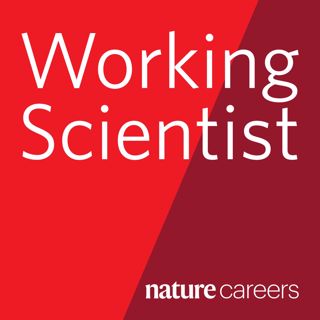Om avsnittet
Scientific research is not the endeavour of a single person. It requires a team of people. How can this be better reflected in graduate student training, asks Julie Gould.Is science ready for "Team PhD", whereby a group of students work more collaboratively, delivering a multi-authored thesis at their end of their programme? Jeanette Woolard, who recently secured a £4.5m Wellcome Trust grant to fund a four-year collaborative doctoral training programme in her lab at the University of Nottingham, UK, believes it could happen one day."The team driven PhD is not distant dream. It's soon-to-be a fulfilled reality," Woolard, professor of cardiovascular physiology and pharmacology, tells Julie Gould. "If you give it enough of an incentive and wave the flag hard enough for team science, it will come."Woolard's Wellcome grant allows four graduate students to have their own research focus but to work collaboratively. "Each of the individual candidates are still pursuing an individual PhD and they will each write up an individual thesis at the end of their four year period of study," she says, arguing that the scientific community and students themselves aren't yet ready for programmes that culminate in a team focused thesis. "I think individual students still either like the idea or deserve the opportunity to defend their own piece of work at the end of their studies."The new programme at Nottingham, she says, provides them with "the most collaborative environment possible, where they have the opportunity to work together as much as they can, to utilise as many skills as are available, and to really experience a dynamic, collaborative team-driven environment. "Ultimately that's what there are going to experience especially if they go into industry or pursue excellence in academia. Our best outputs now are judged as being multidisciplinary," Woolard adds.A team thesis may be some way off in science, but what about other disciplines? Jill Perry is Executive Director at the Carnegie Project. She tells Gould how the project is helping to redefine the education doctorate in the US. Hosted on Acast. See acast.com/privacy for more information.
Senaste avsnitten

How studying octopus nurseries can shape the future of our oceans

How we slashed our lab’s carbon footprint

Meet the retired scientists who collaborate with younger colleagues

A dumpster full of mercury and other things to avoid: lab closures made simple

Pension planning and psychosocial support: how institutions can help academics at the late career stage

“Who am I if not a scientist?” How to find identity and purpose in retirement

Choose your own adventure: navigating retirement after an academic career

The last few miles: how to prepare for the late-career stage in science

Counting the cost of fashion’s carbon footprint

